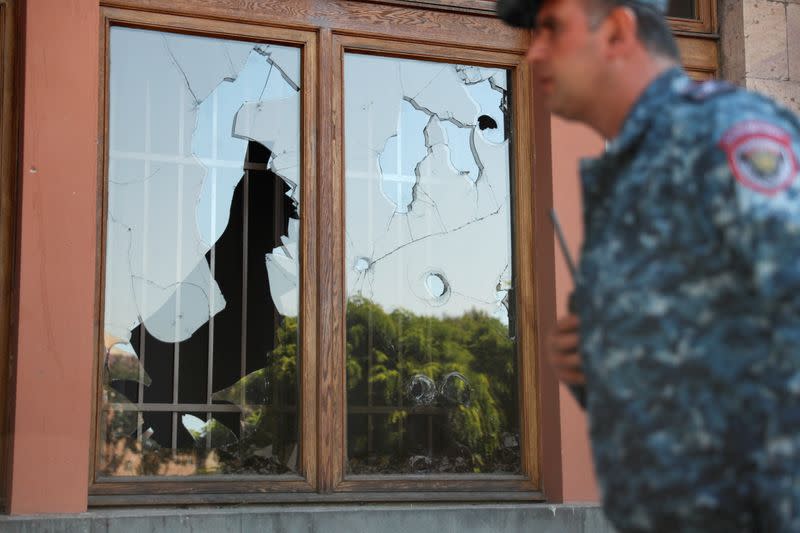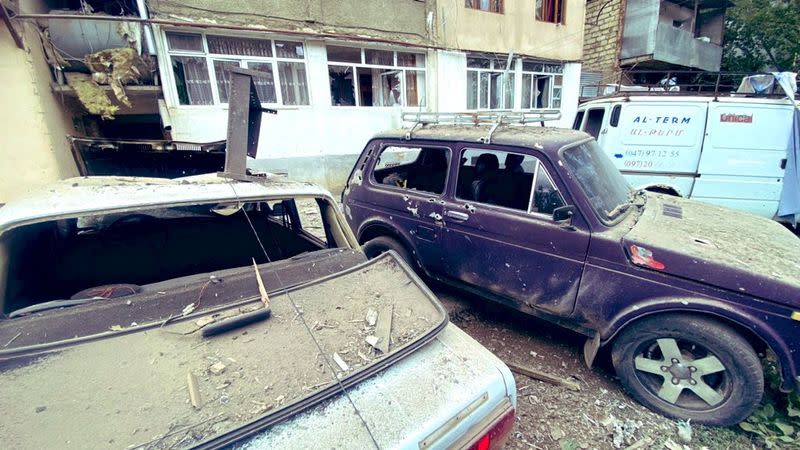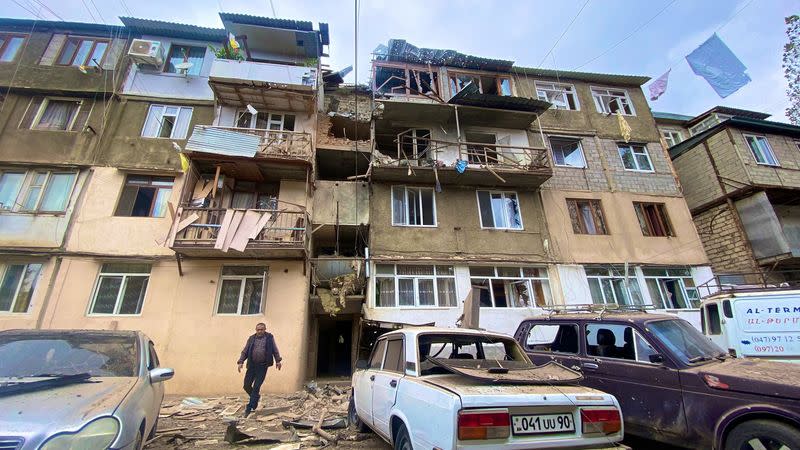Factbox-Armenians of Nagorno-Karabakh agree to disarm
MOSCOW (Reuters) - Ethnic Armenians in Azerbaijan's breakaway region of Nagorno-Karabakh agreed to a Russian proposal for a ceasefire on Wednesday, including the complete disarmament of their military force after Azerbaijan began an military operation.
What do we know so far about the ceasefire?
WHAT DID KARABAKH ARMENIANS SAY?
The self-styled "Republic of Artsakh" said in a statement that Azerbaijan had broken through its lines and seized a number of strategic points while the world had stood by, doing nothing.
It said its forces had inflicted heavy losses on the enemy - something Reuters could not independently confirm - despite being heavily outnumbered and outgunned.
"Unfortunately, the Artsakh side also suffered losses and injuries, and in some areas the enemy managed to penetrate the combat positions of the defense army, capture a number of heights and strategic road junctions," the statement said.
"In the current situation, the actions of the international community to end the war and resolve the situation are inadequate. Considering all this, the authorities of the Republic of Artsakh accept the proposal of the command of the Russian peacekeeping contingent to cease fire."
WHAT DOES IT INVOLVE?
The Karabakh Armenian statement said the ceasefire would be effective from 13:00 local time on Wednesday.
It said the separatist forces would disband and disarm. The statement spoke of regular Armenian forces also withdrawing from Karabakh. Armenian Prime Minister Nikol Pashinyan had said on Tuesday that his country was not involved in military operations and "does not have an army in Nagorno-Karabakh".
WHAT DID AZERBAIJAN SAY?
Azerbaijan confirmed the ceasefire. Azerbaijan's state news agency said that the separatists had surrendered.
It said Armenian armed forces stationed in the Karabakh region and all "illegal armed groups" would disarm. All ammunition and heavy military equipment would be handed over, it said.
Russia's peacekeeping contingent would help coordinate the ceasefire, it said.
Baku said a meeting between Armenian residents living in Karabakh with Azerbaijani authorities would take place on Sept. 21.
WHAT DID RUSSIA SAY?
Moscow said the Russian peacekeeping contingent was continuing to perform its duties, albeit in aggravated conditions, and provide assistance to civilians.
The Kremlin rejected Armenian assertions that Russia had not done enough to prevent fighting in Nagorno-Karabakh, saying the matter concerned Azerbaijan's actions on its own territory.
Its spokesman Dmitry Peskov said the timing of a phone call between President Vladimir Putin and Armenia's Pashinyan was still being determined.
WHAT DID ARMENIA SAY?
Pashinyan was quoted by Russia's Interfax news agency as saying Armenia had noted the decision by Karabakh authorities to agree to a ceasefire but that Yerevan had not been involved in preparing the text of the agreement.
(Reporting by Guy Faulconbridge; Editing by Mark Trevelyan)




